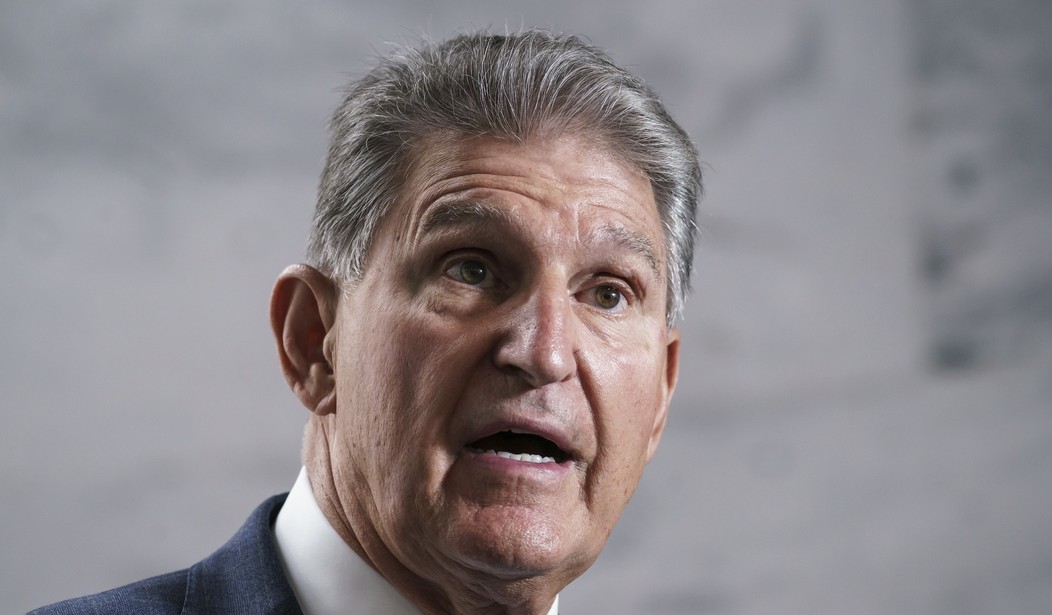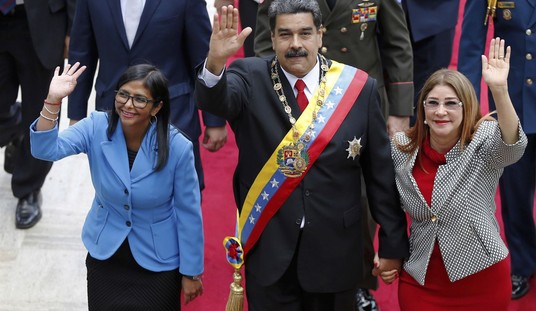Sen. Joe Manchin (D-W.Va.) has been in politics since 1982, so he knows a thing or two about wheeling and dealing. Manchin was sitting pretty, holding the fate of the entire Democratic Party in the palm of his hand because it was his vote that was absolutely necessary to keep Joe Biden’s agenda alive.
When Democratic Majority Leader Chuck Schumer doggedly pursued Manchin’s vote for the so-called “Inflation Reduction Act,” he didn’t arrive at the negotiations empty-handed. Schumer came to the table bearing gifts — the kind of gifts that a politician like Manchin couldn’t refuse.
Schumer and Manchin crafted a “side deal” that gave Manchin a big, fat, plum while giving Joe Biden a huge legislative victory just when he needed it. The deal was Schumer’s promise to support an overhaul of the nation’s process for approving new energy projects, including expediting a gas pipeline proposed for West Virginia — the Mountain Valley Pipeline (MVP).
It is wildly out of character for the Biden administration to go soft on the environment just when it was making a big deal about the climate change provisions in the anti-inflation package. By streamlining the administrative process to approve oil and gas projects — something Republicans have supported in the past — Manchin got something for the home folks while Biden’s stock in the Democratic Party skyrocketed.
According to Senator Manchin’s office, the commitment from President Biden, Schumer and Pelosi will be used to pass legislation for the MVP to be completed and, “streamline the permitting process for all energy infrastructure.” This will be used from, “transmission to pipelines and export facilities.”
Manchin’s office says it will be voted on by the end of the fiscal year, which is Sept. 30, 2022.
It says the MVP is already 94% complete and will, “[unlock] 2 billion cubic feet of natural gas per day.”
Manchin’s team says $1.2 billion will be used in additional investment to complete the project, it will take an estimated four to five months to complete, around 2,500 construction-related jobs will be used, $40 million will be seen annually in new tax revenue for West Virginia and $200 to $250 million more per year in royalties for WV landowners.
All is not sunshine and strawberries, however. There are already rumblings from the radical greens in Congress that they might scuttle the “permitting” legislation on new energy projects. And GOP assent is not a certainty.
The immediate reaction to the details of the agreement were mixed. Christy Goldfuss, senior vice president for energy and environment policy at the Center for American Progress, a center-left think tank, pointed out that “it appears this deal does not circumvent the necessity of gathering information about the impacts of a proposed project,” meaning its environmental impact could be mitigated. She also pointed out that the broader energy package includes additional funding for agencies to review new energy projects.
In both public and private talks, Manchin has made clear that he views approving the Mountain Valley Pipeline as a top priority. Supporters have characterized it as a way to help make the United States an exporter of liquefied natural gas, which the United States is sending to help Europe amid the war in Ukraine.
Manchin’s cave-in to Biden was not unexpected. He had made it clear on numerous occasions that he saw his job as a Democratic senator as giving support to Biden so that he could succeed. He also made it clear that he would never switch parties, no matter how much the Democrats threatened him.
Now he’s a big hero on the left — until the next big issue arises in which he will stand in the way of Biden and his fellow Democrats.










Join the conversation as a VIP Member